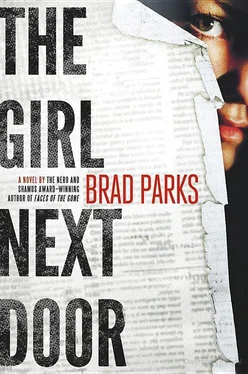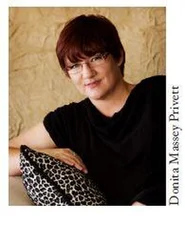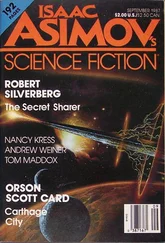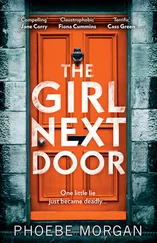Brad Parks - The Girl Next Door
Здесь есть возможность читать онлайн «Brad Parks - The Girl Next Door» весь текст электронной книги совершенно бесплатно (целиком полную версию без сокращений). В некоторых случаях можно слушать аудио, скачать через торрент в формате fb2 и присутствует краткое содержание. Год выпуска: 2012, ISBN: 2012, Издательство: Minotaur Books, Жанр: Триллер, на английском языке. Описание произведения, (предисловие) а так же отзывы посетителей доступны на портале библиотеки ЛибКат.
- Название:The Girl Next Door
- Автор:
- Издательство:Minotaur Books
- Жанр:
- Год:2012
- ISBN:031266768X
- Рейтинг книги:4 / 5. Голосов: 1
-
Избранное:Добавить в избранное
- Отзывы:
-
Ваша оценка:
- 80
- 1
- 2
- 3
- 4
- 5
The Girl Next Door: краткое содержание, описание и аннотация
Предлагаем к чтению аннотацию, описание, краткое содержание или предисловие (зависит от того, что написал сам автор книги «The Girl Next Door»). Если вы не нашли необходимую информацию о книге — напишите в комментариях, мы постараемся отыскать её.
The Girl Next Door — читать онлайн бесплатно полную книгу (весь текст) целиком
Ниже представлен текст книги, разбитый по страницам. Система сохранения места последней прочитанной страницы, позволяет с удобством читать онлайн бесплатно книгу «The Girl Next Door», без необходимости каждый раз заново искать на чём Вы остановились. Поставьте закладку, и сможете в любой момент перейти на страницу, на которой закончили чтение.
Интервал:
Закладка:
“Hell yes. The least thing you can do is grant a reporter his last interview.”
“Okay, I guess there’s no harm now,” he said. “On the record: yeah, that pencil-pushing prick from the NLRB came to my office on Monday, asking me questions about allegations made by Nancy Marino.”
“And what happened?”
“I stalled him. It was all crap anyway.”
We were picking up speed as traffic diverged into the enormous mixing bowl of roadways at Newark Liberty International Airport. I followed the signs for Route 78.
“Oh, come on, you’re not really going to deny sexually harassing her, are you?” I said. “Your union probably represents a couple hundred employees a year in sexual harassment cases. You know the rules.”
“Damn straight I do,” he said. “There’s two kinds of sexual harassment. One is quid pro quo, where your boss asks for sexual favors in return for a raise or a promotion. The other is creating a hostile work environment. Well, guess what? I’m not her boss-I’m just an employee of the union to which she belongs. Hell, if anything, she’s my boss, because she votes for the board that hires or fires me. So there could be no quid pro quo. And I couldn’t have created a hostile work environment for her when she doesn’t work for the union.”
There were at least a hundred holes in his argument, not the least of which was that union negotiations easily fit under the umbrella of a “work environment” as the courts had defined it. Besides which, you’re not allowed to grope a woman’s thigh without her permission outside the work environment, either. But I wasn’t arguing legal technicalities with a man so obviously deranged. Or so armed.
“So why did Nancy take all that to the NLRB anyway? Shouldn’t she have gone to the EEOC?”
“Because her complaint to the NLRB didn’t have to do with the harassment,” he said. “She was saying her harassment complaint had not been properly heard by the union.”
“Was it?”
He chuckled, like he was enjoying this. “Hey, it’s not my fault our human resources people didn’t see things her way,” he said. “She got a thorough exercising of due process.”
More likely, she got the runaround when McNabb cajoled and threatened his horsewhipped employees into ignoring her complaint. This was all becoming clear to me.
“So, if you were so much in the right,” I said, “why kill her?”
He actually laughed. “You ask good questions, you know that? In some ways, it’s a shame I have to kill you, too. You were one of the best reporters in my Rolodex.”
“Yeah, and I’m a good enough reporter to know when someone is dodging my question. So, again, why kill her?”
“Because I was tired of dealing with her,” he said. “She had gotten to be too much of a headache, and I realized she was never going to shut up. I just tried to give the bitch a few compliments and she went and made some big thing out of it.”
* * *
The line of storms I had been watching in the distance hit Newark just as we got off Route 78, while I was on the ramp for Exit 56. It reduced visibility to the few feet in front of my windshield, but that bothered me less now that we were back in Newark. I may be the whitest man alive, but Newark is still my hood. I could find my way to 81 Summit Avenue in a blizzard if need be.
So I hydroplaned my way into the Weequahic neighborhood that Philip Roth once called home. The Jewish population that dominated this area fled in the fifties and early sixties, not long after Roth himself left for college and never came back. The street names and some of the old houses might still look familiar to Roth or any of the other aging Jews who still had a memory of the place. But it had changed in just about every other way. The Weequahic they knew was long gone.
We kept hitting red lights all along Elizabeth Avenue and on Chancellor Avenue. It occurred to me the storm had significantly improved my chances of being able to make a break for it at a stoplight. I just couldn’t figure a way to get out of the car. The Malibu kept the doors locked as long as it was in Drive, so I couldn’t just roll out. There was too much my hands had to do: unclick the seat belt, unlock the door, pull the handle. It was impossible to even attempt such a move while white-knuckling the steering wheel at ten and two. Not even Houdini could have pulled that sleight of hand.
We passed Weequahic High School and I glanced at the Malibu’s clock. What should have been a fifteen-minute drive had taken us closer to thirty. I just hoped it was enough time for Lunky to do something other than prepare a lengthy reply message about how Roth really intended for suicide to be used as an allegory.
But as I turned onto Summit Avenue, I didn’t see any kind of welcome party, just a long, wet, empty street teeming with raindrops. Up until that moment, my faith in Lunky had been total, perhaps inexplicably so. I thought for sure he’d still be hanging around the newsroom, like he was every other night, see my message, get the reference to Roth’s home and call in the reinforcements.
Instead, my life was going to end because Lunky either wasn’t reading his e-mail or didn’t understand it. He was a kid who couldn’t find his way out to South Orange Avenue without me holding his hand and who thought he could wait until the next morning to write a story for a daily newspaper. Just because he was well read and knew how to translate a Caesar cipher didn’t mean he had been handed enough street smarts to be of any real use.
I slowed as I approached the former Roth family home, which was on the right side. It was a three-family house with brick front steps and little in the way of a yard. Someone had added stone facing to the first floor at some point after the Roths departed. There was also a plaque marking the house’s significance.
“We’re here,” I announced as we approached. “I don’t suppose we could just call this quits, could we? You know, I’ll let you skate on Nancy if you let me walk away? I don’t need to tell the police anything. And I can forget I ever met a guy with the initials J.M. What do you say?”
But McNabb either wasn’t listening or didn’t feel like answering. I turned slowly to face him and saw that his eyes were scanning the street.
“This is good. This is perfect,” he said. “Now do exactly as I say. Park the car.”
“Okay. There’s no parking on this side.”
“Fine. Turn it around. Just pull a U-eey in this intersection.”
I followed his instructions. There were several parking spots available opposite the Roth house, and I stopped in one of them. Just then, a shock of thunder rattled the car with a sound wave so powerful it seemed to alter the air pressure as it passed.
Something about it jolted me out of the numbing sense of calm that had gripped me ever since McNabb pulled the gun on me. It finally occurred to me, This is it. I’m really going to die.
More than anything, I felt pissed. Joan of Arc was, what, sixteen when she died? Half my age, and she led armies. Jesus? He was thirty-three-only a year older than me-and look at all he managed to get accomplished in that time. I’m not saying I had delusions of grandeur, like anyone ought to be basing an entire religion-or a television miniseries-on my life. But dammit, here I was thirty-two and all I had to show for it was a few decent newspaper clips scattered across the course of a not-even-half-finished career. Now here I was, working my last story, and I’d never even get to write it.
At the very least, I was through with being obsequious. If he was going to kill me, it would be on my terms.
“Come on, let’s get this over with,” I said, ripping my hands from the steering wheel, hitting the button on my seat belt, shoving open the door, and swinging my legs onto the street.
Читать дальшеИнтервал:
Закладка:
Похожие книги на «The Girl Next Door»
Представляем Вашему вниманию похожие книги на «The Girl Next Door» списком для выбора. Мы отобрали схожую по названию и смыслу литературу в надежде предоставить читателям больше вариантов отыскать новые, интересные, ещё непрочитанные произведения.
Обсуждение, отзывы о книге «The Girl Next Door» и просто собственные мнения читателей. Оставьте ваши комментарии, напишите, что Вы думаете о произведении, его смысле или главных героях. Укажите что конкретно понравилось, а что нет, и почему Вы так считаете.












